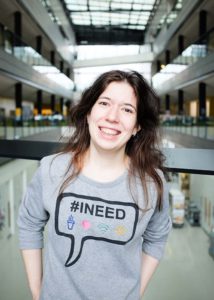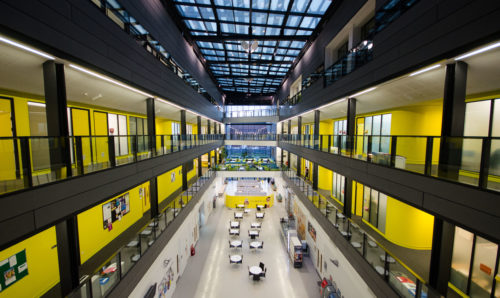First Year of PhD
Student experience 8th August 2018
I am in my first year of PhD, and it is my first time studying abroad. Before that I was educated in Russia in a 6-year long program that was, in essence, a joint masters and bachelors. When starting my time in Manchester, I did not think that mathematical education in universities in different countries could be any different – I expected it to be, say, for Humanities, but Maths surely was much more strict and rigorous. Well, I was proved wrong and surprised. These are some of the things that seemed strange from a point of view of an international student.

Complete absence of oral exams. Regardless of the fact that we studied maths, the only kind of exams we had in my old university were oral ones! You had to randomly take a piece of paper with a topic written on it, then prepare for an hour–an hour and a half, write everything you knew, and wait for the professor to come, sit next to you and listen to whatever knowledge you have managed to squeeze out of your over stressed brain. You were most likely given a problem or two, and after solving them (or not) told your final mark and let go. I cannot say which method of assessment is more fair –oral or written exams, but the latter spared you the long days of waiting for your mark to be announced! On the other hand, the exam itself could take an age- because you have about 40 students and only a handful of teachers and TAs in the room: the longest one I remember sitting through was as long as 6 hours. After such an experience you can only crawl out of classroom and try to somehow get home to get some sleep, because chances are you have not slept the night before!
No need to do original work. We did not have to do any writing in the first two years of studying, and the first bit of writing that everyone had to do was what was called a course work – the student was given an easy but yet unsolved problem they were meant to look into and, ideally, solve. Your efforts had to be written down with appropriate background in something that resembles an article. The main criterion according to which it was marked though was not the depth of your background research or the quality of writing – it was the fact of having original results, as simple and insignificant as they were. Without having done any original work you could not achieve the highest mark.
Different organisation of studying process. In my old university we had two types of studying sessions: lectures and what we called seminars. Students were divided into groups of about twenty people, lectures were held in big rooms, suited for sitting about two hundred people, and the same lecturer taught all the groups. Seminars were individual – with a different teacher – and only for the students in the group. Theoretical material was given at the lectures, and seminars were dedicated to giving more clear and straightforward methods of solving problems.
Curriculum. Back in Russia, we had much less freedom in choosing subjects we took up – especially in the first two years. There was a very strict list of compulsory subjects you had to pass every semester –or you were expelled. An interested student could take additional courses, but even if they passed, those were considered as something above your work program and not taken into account if you didn’t pass the compulsory ones. Also, the retaking of exams was right after both exam sessions and actually during the semester, so people who failed had to do a double duty of studying and retaking what they have not passed.
To sum up, I repeat what I have stated in the part about exams -I honestly have no idea which method of teaching is better, and each has its pluses and minuses. If trying to come up with an ideal one, I would rather take something from both, but I can say for sure that it is great to have experienced both!
Nataliya




